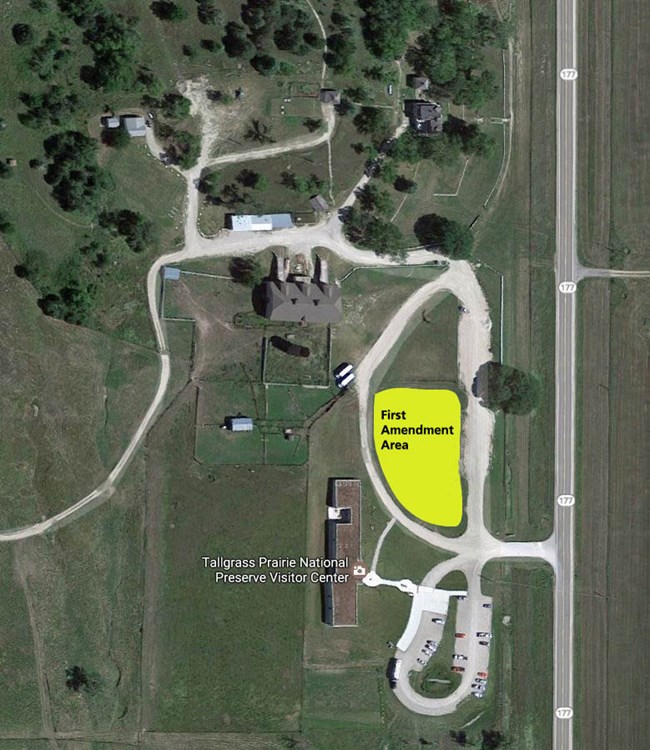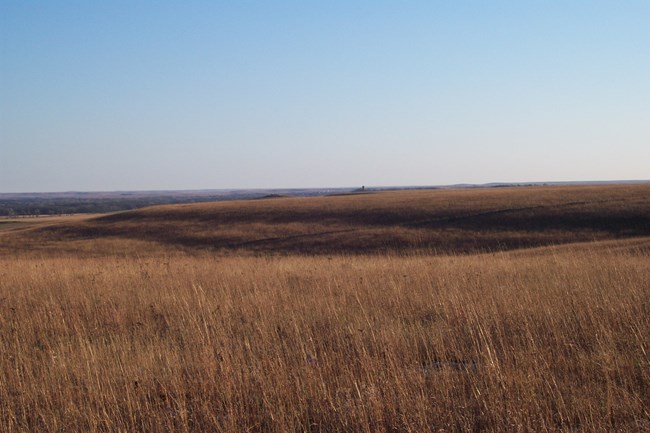FishingExcept as provided below, fishing shall be in accordance with the laws and regulations of the State of Kansas (36CFR2.3).
Research Permits
Reservations
Special Use PermitsCertain types of activities require a special use permit. These include many types of organized gatherings, distribution of printed material and other public expressions of opinion, and other activities that are controlled or prohibited. See the following definitions and examples to determine if your use might be included. A special park use is defined as a short-term activity that takes place in a park area, and that:
Examples include: weddings, other ceremonies, scattering of human cremains, or public assemblies, etc. Examples of a First-Amendment Activity include: a church service or Freedom-of-Speech activity Special Use PermitsSpecial uses require a permit. Primary consideration will be given to potential resource damage and to anticipated disruption of normal public use. Park staff will help ensure that your event runs smoothly and without interfering with park operations, resource protection, or the public's enjoyment of the park. For more information about special use permits, contact the Chief of Interpretation at (620) 273-6034. Permit applications, certificates of insurance, and correspondence may be faxed to (620) 273-8660. Please follow the link below to learn how to apply for a permit.
Special events, group gatherings, First Amendment activities, and weddingsSporting events, festivals, concerts, weddings, cultural programs, First Amendment activities, and group gatherings for social and community events are examples of special uses that require permits. All weddings and ceremonies require permits, regardless of the group size. Weddings at the preserve are authorized only at the Lower Fox Creek Schoolhouse, as it was once a community building and a wedding could have conceivably been performed. To preserve the building, a set of rules (including maximum participants) has been established for resource protection.

Courtesy of Google Maps 
NPS Photo Film, Photography, and Sound Recording Permits on Preserve LandWho Needs a Permit?You will need a permit for your filming, still photography, or sound recording activity in the following situations:
Who Does Not Need a Permit?You will not need a permit for your filming, still photography, or sound recording activity in the following situations:
Who Might Need a Permit?For some low-impact activities involving 6 to 8 individuals, you may qualify for a de minimis use authorization instead of a full permit. Localized Areas With High Volume of VisitationDuring the summer season, the ranch headquarters area of the Tallgrass Prairie National Preserve is considered a high visitation area. We are currently reviewing visitor use data to determine if additional locations receive a very high volume of visitation. In the interim, if you are planning on filming, photographing, or recording in the aforementioned area, or an area where your filming activities may impede the experience or access of other visitors, please contact us before submitting your permit application. FeesApplication FeeAn application fee of $100 must be paid at the time of submitting the application and is non-refundable. Payment may be made via a check (payable to Tallgrass Prairie National Preserve) to the following address: Tallgrass Prairie National Preserve, 2480B KS Hwy 177, Strong City, KS 66869. Monitoring FeeTallgrass Prairie National Preserve staff must monitor certain filming, photography, and sound recording activities. This includes, but is not limited to, projects with large crews or extensive equipment, those that may cause resource damage, or those that could impact visitor use. How to ApplyDownload and fill out the special use permit application to go along with your non-refundable application fee (see Application Fee above). What About Photography Workshops?If you are planning a photography workshop, you may need a commercial use authorization. See the commercial use authorization page for more information. |
Last updated: March 20, 2025
